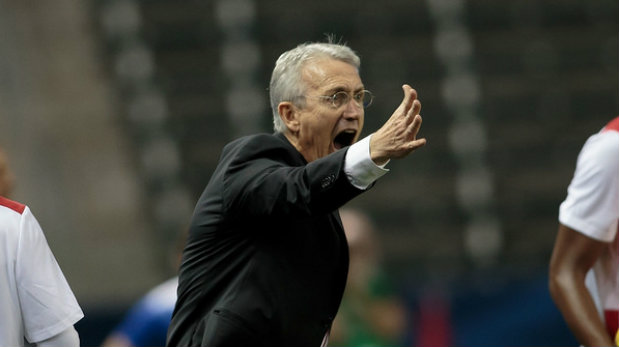Benito Floro in his 40s recently took on the monumental task of being the coach of Real Madrid, with Butragueño, Zamorano, and Prosinecki. More than 20 years have passed since then and this coach's sports journey has reached nomadic levels. From Spain to Japan with a stop in Morocco. Until last month, he was the coach of the Canadian national team. And during this pause in his career, he will visit us this Thursday as the keynote speaker at the First Sports Management Congress. This event is organized by Z Sports and has the support of San Martín de Porres University and CIES, an international university network that works with FIFA. We must listen to him. Benito is not just Floro.
— What were the main lessons you learned after coaching Real Madrid between 1992 and 1994?
There were many, really. I arrived as a young coach at Real Madrid. I learned, for example, that managing a popular club, not a corporation, must be done with a lot of quality and responsibility in order to aspire to great things.
— Can we say that Real Madrid is the club with the best management worldwide?
I don't know how the management is in other clubs, but Real Madrid's is very good and quite solid. And good results have accompanied that organized system of work.
— Is it good for Spanish football that things have been leveled out a bit between Real Madrid, Barcelona, and other clubs like Atlético de Madrid and Sevilla?
These are stages that depend more on generations of good footballers than on the economic aspect, in which both teams –Barcelona and Real– will always be superior to the rest of the league teams.
— How many years of formative work did it take for Spain to become a world champion team?
It has been a convergence of several positive factors and it would be superficial to summarize it in just one. It's something more complex than it seems, but yes, it's something that had been developing for many years. That title in South Africa 2010 was not a coincidence.
— When did the professionalization of sports grow in Spain? It is said that many things changed after the Barcelona '92 Olympic Games...
There were two institutions that were the pillar of sporting progress in Spain: the sports management school of the dictatorial regime which, without any political aspect, trained teachers and coaches of great level. And the INEF (Faculty of Sports Sciences) which, in democracy, reached a high level of preparation for technicians in all disciplines, which made possible the growth that was demonstrated at the Barcelona Games.
— Are we facing a great opportunity by organizing the Pan American Games in Lima in 2019?
Lima 2019 is an opportunity for Peruvian sports. Take advantage of it to train educational and formative technicians in all disciplines. This factor is what can make a sports system take off.
— Why is the training of sports managers and administrators important in a country like Peru?
Because if they are honest, they will help the resources available in Peru to be used for the sports and educational well-being of the country. Perhaps that is what is currently lacking.
— How has your vision of football changed upon arriving in Canadian soccer?
It hasn't changed, it has increased with interesting details, as will happen until the end of my life. Since I started in this, I have always been open to new ideas and perspectives. I have traveled a lot and have known all kinds of realities.
— Would you accept coaching in Peruvian football or would you prefer to seek a more managerial position in the future?
I have just left the Canadian national team. When one stage ends, I never think about anything specific. I am a professional with free decision. That's why I don't consider anything until it comes, it's difficult for me to have a concrete answer to that.
— What can we expect from your participation in the First Sports Management Congress?
I want to share all my thoughts based on my experience of more than 40 years dedicated not only to training footballers but also to getting involved in club management from the seventh category of Spanish football to the highest level. I hope to interact a lot with the Peruvian audience and that several proposals arise during the talk. I am very grateful for this opportunity.

